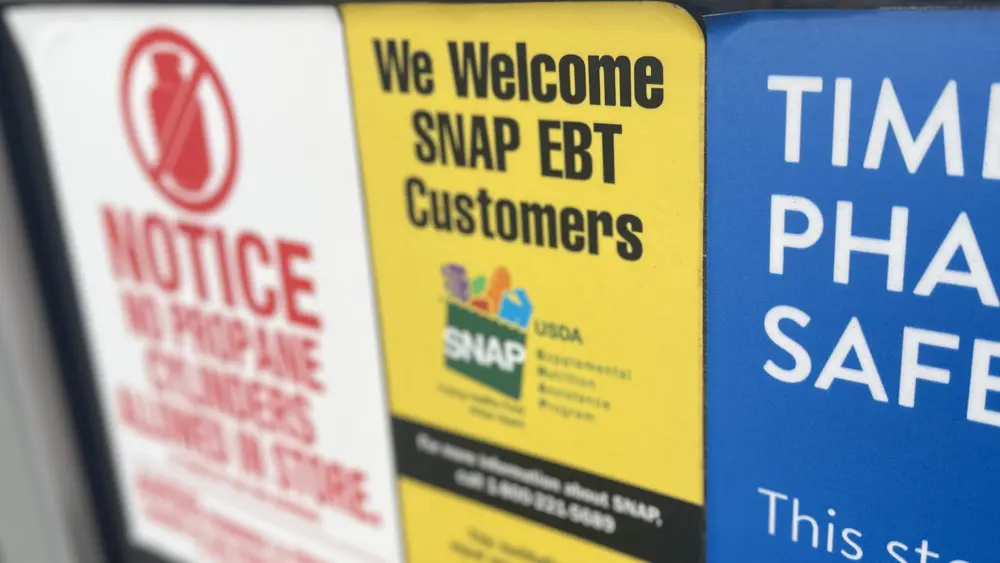MERIDIAN – The Idaho State Police (ISP) recognizes April as National Sexual Assault Awareness Month and remains dedicated to increasing public awareness of this crime. Any unwanted sexual contact is a sexual assault, and thousands are traumatically affected every year. Victims often believe the incident was their fault, and this common reaction prevents them from speaking up, obtaining medical care, reporting the crime, or getting needed support. While it is a difficult decision, ISP encourages victims to call 911 and obtain care as soon as possible by going to a hospital where a Sexual Assault Nurse Examiner (SANE) assists victims.
“Sexual assault takes many different forms, but one thing remains consistent – It’s never the victim’s fault,” says Deb Wetherelt, Idaho SANE Coordinator with ISP. “This is a tough subject, but knowing the facts is important. We know sexual assault is vastly underreported as studies indicate an assault occurs every 68 seconds in the United States; the statistics remain consistent in Idaho. Sadly, children are three times more likely to be sexually assaulted, while 10% of victims are male, no gender is immune from victimization.”
As a Registered Nurse of 46 years, Deb joined ISP as a Forensics Nurse three years ago. Believing no one should be turned away or wait at a hospital for untrained staff, she oversees a statewide program to train nurses and other healthcare providers on medical care and evidence collection after a sexual assault. Deb has instructed 137 registered nurses through the 40-hour SANE course, which prepares nurses to conduct the exam and bolsters the SANE echelon that reaches more local communities.
ISP encourages nurses who have completed the SANE course to pursue international certification, which requires an additional 16 hours of training after the 40-hour course, performing 300 hours of SANE work, and successfully passing a difficult certification exam. The certification demonstrates a high level of expertise and dedication in caring for victims of sexual assault and domestic violence. Currently, there are 17 internationally certified SANEs in Idaho. While the number seems small, it is in line with other Pacific Northwest states, and Deb continues working to increase the number in Idaho.
Deb also provides trauma response behavior training to law enforcement to help them recognize the signs of trauma that victims may experience when reporting a crime. This critical training helps officers understand complex investigative techniques where recognizing the offense, victim responses, and their effect on the process is essential.
A December 2021 research brief on sexual assault victimization in Idaho, conducted by the Idaho Statistical Analysis Center (ISAC) at ISP, found an increasing trend in Idaho’s sexual assaults:
– Between 2016 and 2020, the number of sexual assault victims known to Idaho law enforcement increased by 16%, and the number of sexual assault victims served by grant-funded programs in Idaho’s crime victim service agencies increased by 36%.
– In 2020, about 1 in 8 (or 12%) of all victims of a crime against persons (commonly referred to as “violent crimes”) reported to Idaho law enforcement were from sexual assaults.
– The number of victims served through programs in 2020 (9,573) was 4.6 times higher than the number who reported to law enforcement (2,091).
Of the services available, the Services, Training, Officers, and Prosecutors (STOP) Violence Against Women Act (VAWA) grant, administered at ISP, provides direct services to victims of sexual violence. This includes help navigating the criminal justice process, counseling and other mental health services, providing forensic exams and other medical care, and additional assistance. Before this year, the STOP grant funded Deb’s position and training for new SANE nurses. However, in 2023, the Idaho Legislature provided funding for the position. Now, the grant can provide more training and there are plans to create a pediatric program.
With sexual assault victims, it is important to recognize the effects can be long-lasting and might include developing anxiety, depression, PTSD, suicidal thoughts, and long-term health consequences like asthma, irritable bowel syndrome, frequent headaches, chronic pain, and difficulty sleeping. Getting professional mental health counseling is an important healing step for this trauma – healing IS possible!
“There should be trained SANE nurses at every hospital. When survivors need an exam, they should see a SANE-trained professional and receive the needed follow-up, not wait for an outside referral. SANE nurses have the knowledge and resources to provide better assistance and help victims,” said Deb. “While physical effects may diminish in weeks, the emotional impact of sexual assault is lifelong. Of female survivors, one in three becomes suicidal, with 13% taking their own lives; we need to change that!”
If you are a victim of sexual assault:
- Get to a safe place
- Call 911, go to a local hospital, or a domestic violence shelter
- It is never too late to report a sexual assault or seek help
- Prompt reporting and evidence collection may strengthen the investigation for prosecution
- If you choose, a companion or victim advocate can be with you throughout the process
- If possible, preserve evidence by delaying bathing, showering, and other hygienic processes
- You are not alone – help is available




